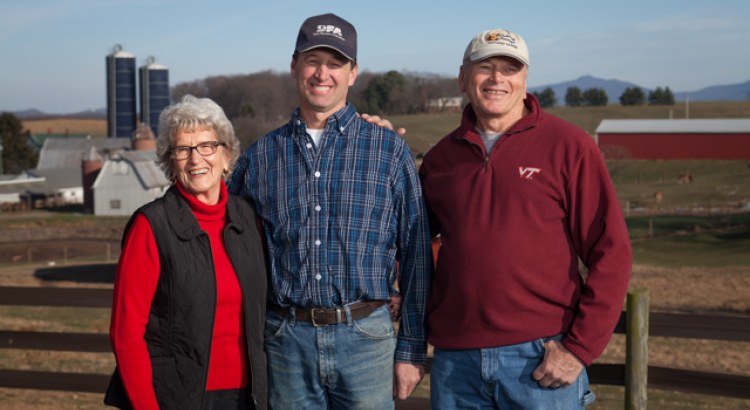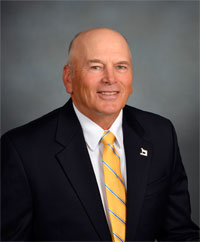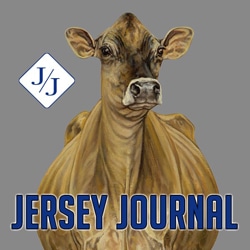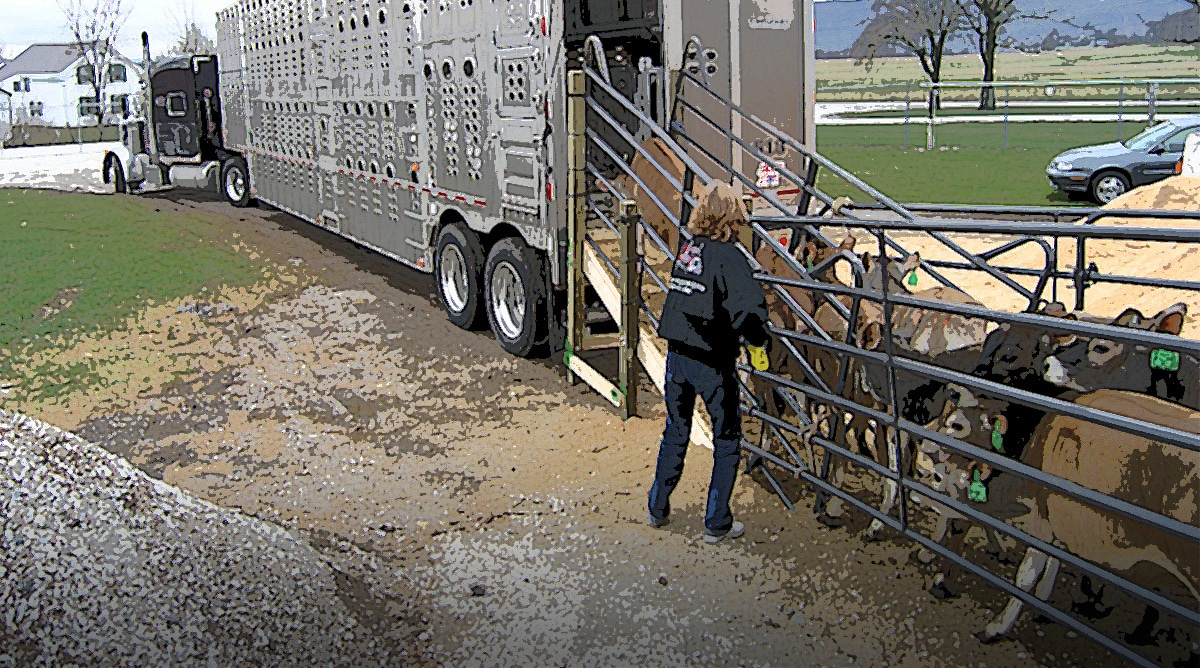Legacy Series: James Huffard III of Huffard Dairy Farms, Crockett, Va.
Welcome to the Legacy Series featuring Master Breeders of the American Jersey Cattle Association (AJCA). Over the next several months, the Jersey Journal will be sharing stories with you previous recipients of this prestigious award. We have asked each of them a series of questions covering topics from philosophy, farm history, breeding questions and even what they might be if they had not taken the route of Jersey breeder. We hope you enjoy getting to know these Jersey breeders and their advice and thoughts to the Jersey world today.
Historical Questions:
Describe your farm history and how Registered Jerseys became a part of your herd.
My grandfather starting milking Jerseys in 1929. We have been doing so continuously since. We have experimented with all breeds, but Jerseys continue to be the most profitable.
What did this award mean to you and your family?
This recognition is very rewarding but is only a testament of the effort applied to breeding for a more profitable animal. It takes time to breed the cow that one likes and fits one’s operation. However, I tried to develop bulls for the marketplace that were different enough, and good enough, to be used extensively and put dollars in dairymen’s pocket.
Who were/are your mentors in the dairy industry?
There are many as one goes through life. But John Bishop and Ed Crotty at Ogston farm were very influential for me in the cattle breeding business. I observed the breeding philosophies of High Lawn Farm very closely also. Dr. John Wilk was always available to share his knowledge with us “young folks” and influenced the breeding philosophies of many who listened.

Your Story:
In your opinion who have been the most influential bulls and cows to your breeding program?
That is a tough question. Sires are selected to improve the herd and every mating goal is to improve the next generation. This takes a variety of sires excelling in different traits. Directly speaking, Berretta, Headline, Hallmark, and Harris have done great things for us. In other ways, Legend and Chocolate Soldier had significant influences.
What do you consider your biggest success in the Registered Jersey business?
Staying in business in a volatile fluid market and breeding Jerseys that we think make us the most money. It so happens that some cow families we developed have produced profitable bulls for many Jersey owners worldwide.
Why did you choose to stay with (or start with Jerseys when the industry was going elsewhere?
My dad had run feeding trials with different breeds and found that the feed conversion to dollars was more profitable with Jerseys. I had to prove it to myself and found the same results. I have a spreadsheet that now shows and proves that a given amount of feed through a Jersey will net significantly more dollars than through other breeds. It is almost impossible to compare cow to cow. But comparing intakes of feed to money returned is much easier to see and way more realistic.
Your Philosophy and Take on the Future:
What traits do or did you focus on the most for your breeding program? How did this evolve and change over time? How do you think they will change in the next 20 years as technology continues to evolve?
I like a functional cow. Good feet and legs, good udder (especially shallow and proper teat placement) and a cow average to above average in size. One that is trouble free and lasts. In a fluid market we breed for milk but emphasize components. Technology changes things, but the consumer still appreciates a nutritious and great tasting glass of milk.
What is the biggest change you have seen in the dairy industry over your years of involvement? Genomics has changed everything in the cow breeding arena. It appears to eliminate the duds, but it has a way to go to be 100%. However, it is a useful tool and with proper guidance will lead us well. Improving the next generation is still the goal of every mating.
In 20 years, what do you think the average size of a commercial farm will be? How will that affect breeding decisions?
There will always be various sizes, but most of the milk will come from very large farms. Management techniques, robots and milk market needs will all effect the type of cow needed.
What do you think has been the greatest challenge the Jersey breed has, or will encounter?
Years ago, infusing milk and component volumes in our breed was the biggest challenge. We did that well. We must not lose sight that doing this profitably is still paramount. Another major challenge is to continually add value and gain market acceptance of Jersey milk. We need to market our cow to dairymen with other breeds and demonstrate how they can be more profitable with Jerseys.
What do you see as the future of the Jersey cow?
Again, if we do not aggressively market our breed to others, our future is extremely limited.
Promotion and Marketing:
As you worked with cow families in your herd, what avenues did you find were the best ways to get the word out about potential bull mothers, young bulls for sales, or special heifers in the herd?
We used the Jersey Journal to market and share info to breeders. AJCA does a good job of recognizing high animals and herds.
Your dairy has had a strong presence in the Jersey Journal through the years- through advertising and/or award recognitions. How do you feel this has benefitted the marketability of your genetics?
It has been advantageous. Just like our breed, no marketing no gain.
The US Jersey organizations offer many management tools for herds in the Jersey business. What programs have been the most beneficial to your growth and why?
AJCA has many good tools. One of the most important has been the accuracy of our appraisal program. This data has allowed for the rapid type improvement of our breed. Our programs and services need to adapt to the needs of our customer, the dairymen. Herds are larger and have a variety of desired needs and services. We should continue to offer programs and services to meet their demands.
What words of wisdom would you give to young breeders just starting out?
Making breeding decisions and watching the next generation mature is rewarding, but astute management and a good handle on the bottom line will make the journey more enjoyable.
Your Dairy’s Future:
What’s next for your dairy?
We continue to move forward and improve and expand our current position. Land availability is a major constraint for expansion. We will continue to focus much attention to our processing facility, Duchess, and add markets as they emerge.
What do you do if there is another generation coming onto the farm to pass on your breeding mentality/ legacy?
The next generation will conform to the tools and breeding methods available. Genomics has certainly changed the current breeding philosophy and mentality of a breeding program. Good cows and bulls will always be the foundation of success.
Time for some fun!
If you could bring any cow back from the dead and breed her one more time, guarantee heifer calf. What would you breed her to?
I would like to use some of the superior genetics today and mate to the Avery daughters of Schultz Sooner Harmony. They were outstanding brood cows. It’s tough to pick just one.
What is one of your favorite cows (or cow families) that you have not bred?
Again, there are many, but the first time I saw Generators Topsy, I could understand the meaning of Excellence. We have owned some and seen many offspring of Midnight Blue that were impressive and were the correct kind generation after generation.
If you were not a dairy farmer, what would you do career wise?
Not sure…. Having obtained my pilots license in high school, made that tempting and I have always been interested in the medical field, but I liked the farm.










